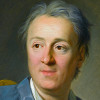“ we should never be liable to mistakes, we should be happier in our ignorance than we can be in our knowledge. ”
Jean-Jacques Rousseau, Emile, or On Education (1762). copy citation
| Author | Jean-Jacques Rousseau |
|---|---|
| Source | Emile, or On Education |
| Topic | ignorance mistake |
| Date | 1762 |
| Language | English |
| Reference | |
| Note | Translated by Barbara Foxley |
| Weblink | http://www.gutenberg.org/cache/epub/5427/pg5427-images.html |
Context
“Because he becomes active and judges no longer by observation but by induction, he affirms what he does not perceive, i.e., that the judgment he receives through one of his senses would be confirmed by another.
Since all our errors arise in our judgment, it is clear, that had we no need for judgment, we should not need to learn; we should never be liable to mistakes, we should be happier in our ignorance than we can be in our knowledge. Who can deny that a vast number of things are known to the learned, which the unlearned will never know? Are the learned any nearer truth? Not so, the further they go the further they get from truth, for their pride in their judgment increases faster than their progress in knowledge, so that for every truth they acquire they draw a hundred mistaken conclusions.”
source


